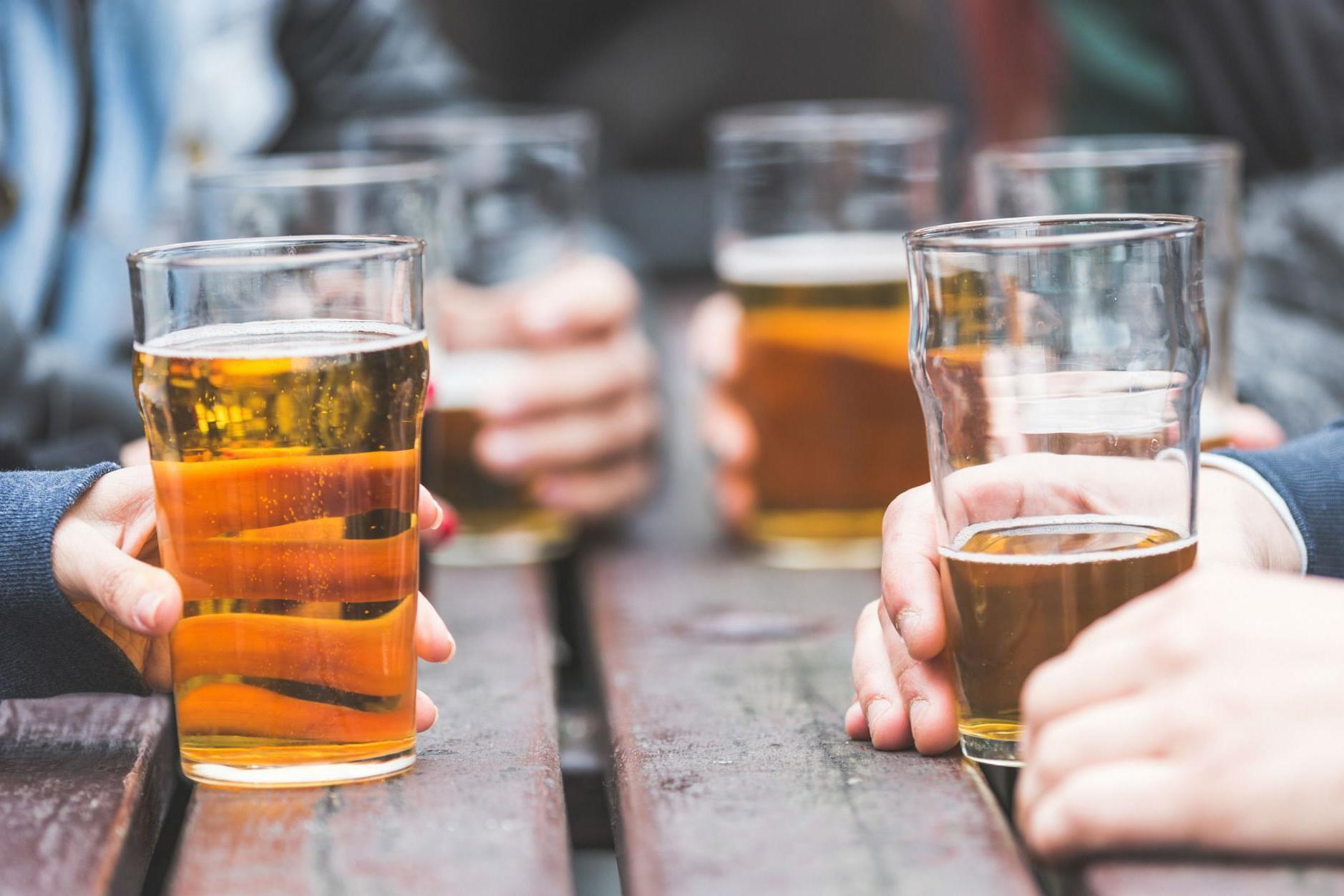Binge drinking 'is in your genes', new study claims
This could be the reason you overindulge

Scientists may have discovered why some people are prone to binge drinking more than others.
Going days or weeks without drinking any alcohol, only to make up for it in one night by overindulging, is easy to write off as a lack of willpower.
However, scientists are now claiming that those of us who engage in such habits could actually be genetically predisposed to do so.
The science behind how alcohol hooks the brain into wanting more has been known for some time; it causes the neurons in a region called the ventral tegmental area (VTA) to release dopamine, the brain’s ‘reward chemical’.
But now, researchers with the Centre for Alcohol Research in Epigenetics at the University of Illinois at Chicago have identified a channel in the VTA, called KCNK13, that is blocked by alcohol and, as a result, causes neurons to become hyperactive and release more dopamine.
The scientists found that some people naturally have less of the KCNK13 channel, meaning that they need to drink more alcohol to feel the same level of pleasure, and could lead to an increased predisposition to binge drink.
The study, published in the journal Neuropharmacology, used mice in a range of experiments to test the theory.
In one experiment, the scientists genetically reduced the KCNK13 channel in the mice’s VTAs by 15 per cent compared with normal mice.
The countries that drink the most alcohol
Show all 1The KCNK13-deprived mice drank 20–30 per cent more alcohol than the normal mice.
Professor Brodie said: “We believe mice with less KCNK13 in the VTA drank more alcohol in order to achieve the same reward from alcohol as normal mice.”
He said this was “presumably because alcohol was triggering the release of less dopamine in their brains”.
However, the scientists admit that they “don't know” exactly how much more alcohol a person with reduced KCNK13 expression would need to drink.
Another test observed the neuronal response to alcohol in the VTA region for mice with less KCNK13 compared to normal mice.
Neurons of the genetically modified mice were 50 per cent less responsive to alcohol than those of the normal mice.
So, why is this important for humans?
The research suggests that people may genetically have more or less of this channel in the rewards centre of their brain, and that may predispose a percentage of the population to drink more.
As such, the discovery could prove helpful when it comes to treating alcoholism.
According to the NHS, UK researchers define binge drinking as consuming more than six units of alcohol in a single session for men and women.
This equates to two to three standard glasses of 13 per cent wine or the same number of pints of four per cent strength beer.
To reduce your health risk from binge drinking, the NHS suggests limiting how much you drink on any single occasion, drinking more slowly and with food, as well as alternating with water or non-alcohol drinks.
Subscribe to Independent Premium to bookmark this article
Want to bookmark your favourite articles and stories to read or reference later? Start your Independent Premium subscription today.

Join our commenting forum
Join thought-provoking conversations, follow other Independent readers and see their replies